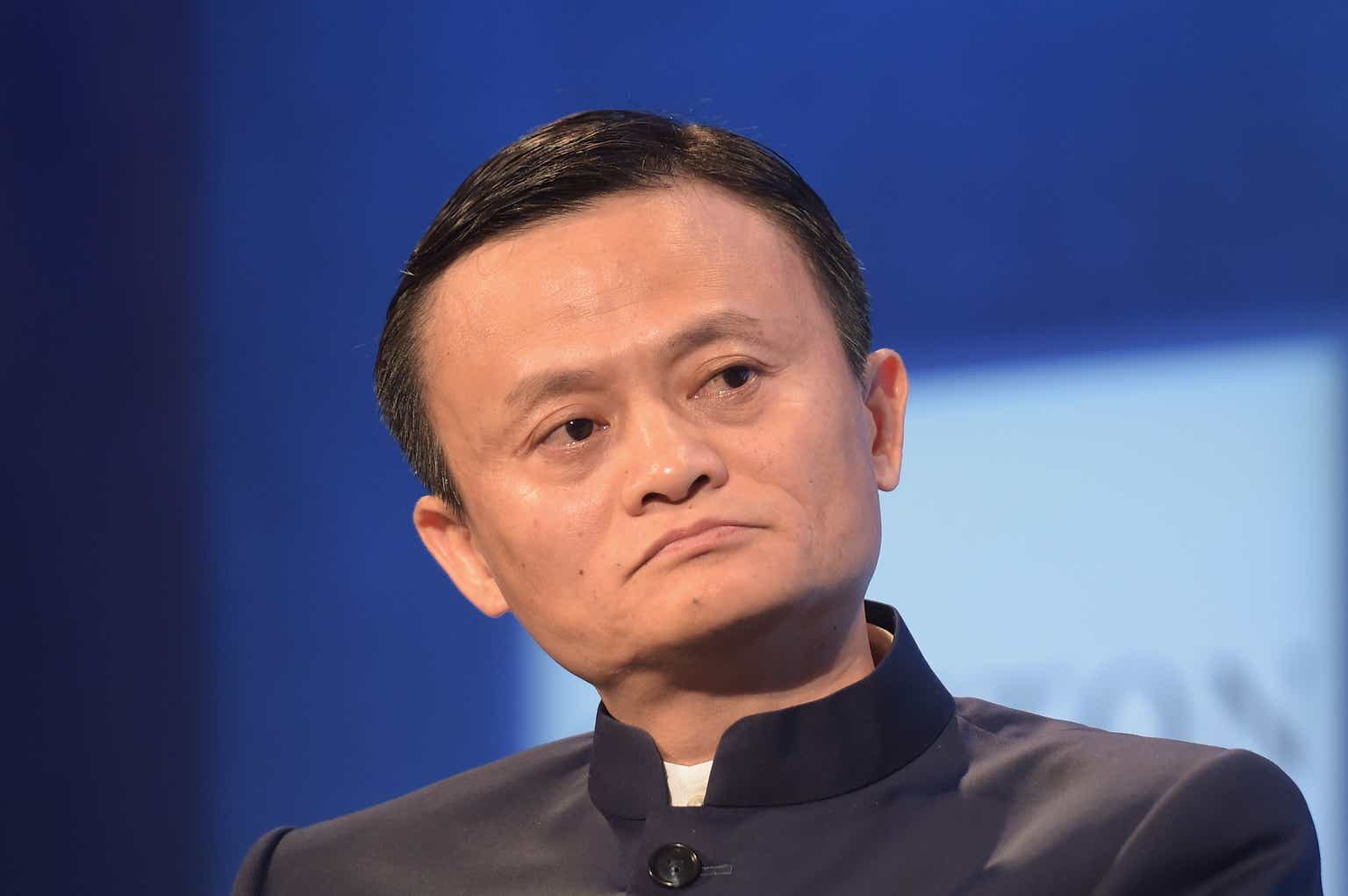Alibaba Group Holding Limited (NYSE:BABA) just released its March quarter earnings and easily beat consensus expectations. The release beat analyst expectations on revenue as well as on EPS. A sore point was the performance of the cloud segment, which was EBITA profitable but shrank 2% in terms of revenue. On a related note, that segment will be spun off to shareholders in the form of a stock dividend, as revealed in the earnings release.
Going into Alibaba’s fiscal fourth quarter earnings release, I had high hopes. I knew that China’s retail sales were growing by 10%, and that the economy had been out of lockdowns for a full month by the start of the quarter. I also knew that JD.com, Inc.’s (JD) first quarter release beat estimates. So, there were plenty of reasons for optimism toward BABA’s own quarterly earnings release.
Nevertheless, some metrics revealed in the release surprised even me. For example, I was rather surprised to see earnings growing 35% year-over-year when much of the cost cutting that contributed to the growth was already underway in the same quarter a year before.
Through all the challenges Alibaba experienced in the period in which I have owned it, I never doubted that the company would return to growth. It may never again have the kind of growth that it had prior to the 2021 tech crackdown, but it has enough growth now that I’m basically satisfied with the company’s trajectory. As we saw in the fiscal fourth quarter earnings release, the company is still highly profitable even after all the challenges it faced in the last 12 months. For this and a few other reasons, I’m comfortable owning Alibaba stock for the foreseeable future.
Earnings Recap
Alibaba’s fiscal fourth quarter earnings release was pretty strong, delivering results like:
-
$30.32 billion in revenue, up 2%, a beat.
-
$2.2 billion in operating income, down 9%.
-
$3.2 billion in GAAP net income, up from a loss, a beat.
-
$1.55 in adjusted EPS, up 35%, a beat.
-
$4.7 billion in free cash flow.
On the whole, there was little here to give investors any cause for disappointment. Revenue and earnings both beat analyst estimates, and all metrics showed solid growth. Margins were very good, with a 10% net margin and a 15.5% free cash flow margin. We also got 1.9 billion worth of buybacks, which probably helped when SoftBank was busy selling all of its BABA shares last quarter.
There were some interesting things to note in the segment results, too. The international commerce segment grew 29%, the best growth of any of Alibaba’s segments in recent memory, showing that Alibaba’s international expansion efforts are paying off. The cloud segment also had EBITA profits, which was a reasonably good thing to see, although the growth in that segment (-2%) was not exactly awe-inspiring. On the whole, it was a good earnings release that investors should be satisfied with.
Competitive Landscape
One thing that was materially impacted by Alibaba’s fiscal fourth quarter earnings release was its competitive position. Competition has been increasing lately in the Chinese eCommerce space, with JD and PDD Holdings Inc. (PDD) offering BABA stiff competition. The competition from PDD Holdings (formerly Pinduoduo) is particularly noteworthy because that company competes with Alibaba not just in China but also internationally, through its Temu app. I’ve used AliExpress and Temu, and I’ve found the two of them quite similar: their apps are similar in design and they sell many of the same products. I would say that Temu is a serious competitive threat to Alibaba internationally. It serves many of the same markets that AliExpress does, is similar in style, and carries a lot of the same products. However, Alibaba’s international commerce segment is still growing rapidly, so the competition with PDD doesn’t appear to be fatal.
More interestingly, we’re now starting to see Alibaba close the gap on growth with JD.com. In most of the last year, JD had far stronger revenue growth than Alibaba did, but in the quarter just reported, JD only grew its revenue by 1.4% while BABA grew its revenue by 2%. So, JD is not “outgrowing” Alibaba anymore, and Alibaba, as always, has much fatter margins than JD.
Valuation
One factor important to analyzing Alibaba’s stock that was affected by the recent earnings release was its valuation. Prior to the release coming out, Seeking Alpha Quant reported the following valuation metrics for BABA:
-
P/E ratio: 11.8.
-
Price/sales: 1.87.
-
Price/book: 1.62.
-
Price/operating cash flow: 9.8.
Now, with the earnings out, some of these multiples have changed quite a bit. The previous March quarter featured lower earnings, the just-reported March quarter brought the “E” part of the P/E ratio up, so now the P/E ratio (using yesterday’s closing price) is down to 11.6. So, Alibaba’s valuation is now more attractive (ignoring whatever happens in today’s trading).
In the three quarters prior to Alibaba’s latest earnings release, the company had $4.49, $1.86 and $1.23 in FCF per share. The latest quarter added $1.79 in FCF (free cash flow) per share, bringing the trailing 12 month amount to $9.377. If you discount that amount at a 5% discount rate, you get a price target of $187.54, which is significant upside to today’s price. This basic discounting does not project any future growth, yet Alibaba has been growing lately, so it’s not unrealistic to think that BABA could reach a much higher fair value than the one I’ve estimated here using extremely conservative assumptions. Therefore, it’s fair to say that Alibaba stock has upside at today’s prices.
Risks and Challenges
As I’ve shown in this article, Alibaba stock is relatively cheap after putting out a strong earnings release. It may be worth investing in. Indeed, I think that it is, but there are many risks and challenges that investors will have to keep in mind here:
-
Competition. As I mentioned in the section on Alibaba’s competitive position, the company faces serious competitive threats from JD and PDD Holdings. JD competes with Alibaba in China, PDD both domestically and internationally. PDD Holdings is growing much faster than Alibaba is, and it dominated the U.S. app store rankings for several months after its release. The more competitors there are in an industry, the more pressure there is on margins, so Alibaba’s future profitability could come under pressure. As of FQ4, the company’s margins are still very high, but PDD’s growth could challenge that in the months and years ahead.
-
U.S./China tensions. There is currently a lot of tension between the U.S. and China, primarily over the status of Taiwan. The U.S. wants Taiwan to remain relatively independent like it is now, China wants to integrate Taiwan with itself. Many in the U.S. worry that China’s designs on Taiwan will escalate to the level of an invasion. In fact, the U.S. is arming Taiwan as we speak. If China were to actually invade Taiwan, it could cause a number of problems for U.S. shareholders. Investors might panic and sell Chinese stocks out of fear. China might close off its capital markets to the United States. Brokers might ban trading in Chinese stocks, like they did with Russian stocks when Russia invaded Ukraine. The number of scenarios here is unlimited, and most aren’t good ones for Western holders of Chinese shares.
-
Issues with access to the U.S. market. Lately, talk of banning Chinese apps from the U.S. has been all the rage in Washington, with Montana recently banning TikTok outright. Ecommerce apps have found themselves in the crosshairs as well. Shein and Temu were recently investigated by politicians for their alleged data issues, Pinduoduo was banned from Google’s play store for similar reasons. It’s tough to say where all of this is heading, but if it can affect Temu, it can affect AliExpress too, an app that’s very similar to Temu in form as well as function.
The Bottom Line
The bottom line on Alibaba Group Holding Limited in the aftermath of its fiscal fourth quarter earnings release is that it’s still a great company, and a very cheap stock. The company is growing, it has high margins, it throws off free cash flow, and it’s doing buybacks. There is little more that an investor could ask for – the fact that the stock has a modest valuation is just the icing on the cake. To be sure, there are real risks here – namely political ones. But, in my estimation, the potential rewards make the juice very much worth the squeeze. I’m still long Alibaba Group Holding Limited, and I likely will be for the foreseeable future.
Editor’s Note: This article discusses one or more securities that do not trade on a major U.S. exchange. Please be aware of the risks associated with these stocks.
Read the full article here











